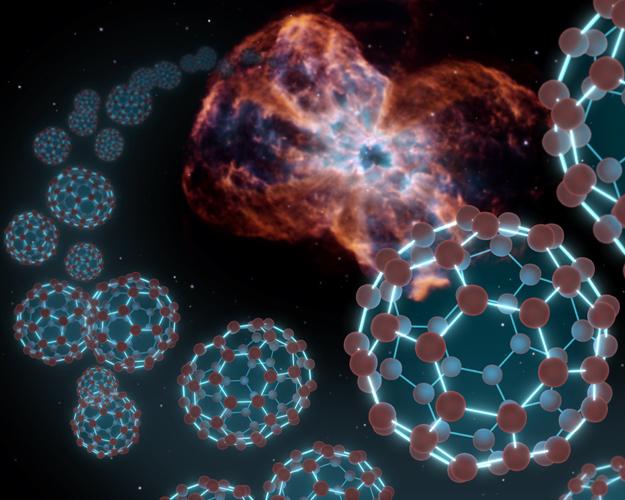A New View on Fine-Tuning of the Universe (With Some Practical Implications for Our Lives)30/8/2017
There’s no law of physics that hasn’t been transcended. In the end, the only law is that there is no law. - John Wheeler, theoretical physicist
Modern science has reached the point where it is inquiring the very foundations of the universe. Was it created by a conscious creator? Or did it simply pop out from nothingness, by a mere chance?
There are countless debates now whether the physical laws of the universe are finely tuned to support biological life or not. There is a good reason for that: they indeed seem to be tweaked for life. Universal Constants As you probably know, many laws of physics are deeply dependent on various constant numbers that are parts of equations describing these laws. Those numbers are called the universal constants – the speed of light (c), gravitational constant (G), electric constant (ε0), Planck's constant (ħ), the mass of an electron (me), two parameters of the Higgs field potential, etc. Moreover, there are also even more fundamental constants that are dimensionless (i.e. not dependent on the unit system used to express the quantity). Those are, for example, the fine-structure constant (α), which defines the strength of the electromagnetic interaction between elementary charged particles, or proton-to-electron mass ratio, or the cosmological constant, which is the density of dark energy in the universe, and so on. There is a strong notion among scientists, backed by many extrapolations, that if any of these universal constants were only slightly different, the Universe wouldn’t be supportive of any kind of biological life. For example, if the gravitational constant were smaller, the stars couldn’t be formed. If it were too large, the stars couldn’t survive or their life span would be much shorter, so in either case, life wouldn’t be possible. Similar conclusions can be deduced for all other universal constants. If any of these universal constants were only slightly different, the Universe wouldn’t be supportive of any kind of biological life.
One of the solutions could be that we live in a multiverse, consisting of a huge or even infinite number of universes, each having different internal laws of physics.
Hence, the possibility of the emergence of a universe out of nothing, which is suitable for biological life and/or development of conscious beings, is practically equal to zero. There must be a conscious creator of this world.
Or is it so? One of the solutions could be that we live in a multiverse, consisting of a huge or even infinite number of universes, each having different internal laws of physics.
5 Comments
Author: Lucy TaylorLucy Taylor is an avid blogger who enjoys sharing her tips and suggestions with her online readers. Working as a legal expert at LY Lawyers, Lucy often helps people dealing with legal problems, addictions and crime. Follow her on her Twitter @LucyTaylor1981. Here’s how to spot when an addict is about to relapse – and how to help them out. Addiction is a lifelong burden to bear: an addict in recovery believes that they will never truly be cured. They can relapse at any time, and without personal diligence and a good support system, many addicts do fall victim to this. Here’s how to spot when an addict is about to relapse – and how to help them out. 1. Change in mood If someone’s mood suddenly changes, and especially if they are experiencing mood swings, this could be a key sign of internal conflict. Not only that, but sudden stress and irritability could lead to them seeking a return to their old addiction in order to feel better. Irritability, secrecy, and sudden bad moods are key signs to look out for. If you spot those signs in an addict you know, try talking to them about the cause behind their mood change to see if you can help alleviate the source. Irritability, secrecy, and sudden bad moods are key signs to look out for.
In a normal, “waking” state, we are almost always completely immersed in whatever we are doing at the moment. We might even say that we are fully absorbed in here and now.
However, If the point of mindfulness is to be here and now, doesn’t that mean that we are meditating every time we are completely immersed in some activity? Whenever we exercise, play football, listen to music, watch TV, talk with our friend, think, or even fight – we are fully in the present moment, right? The tricky question Thinking this way, can we say that activities which typically consume our attention are also a sort of meditation? Well, no. We are lost in such activities. Usually, we are totally absorbed in playing the game, listening to music, exercising, whatever…and we have become that activity. Our consciousness is focused completely on it. Moreover, the answer to the previous question also depends on how we define meditation. Let’s use the broader meaning of meditation, that includes mindfulness. It means that we are meditating here and now, whatever we are doing, without any redundant contents of mind, aware of our surroundings and ourselves. When thoughts or emotions arise, we simply become aware of them, let them go and return to the Now. Can we say that activities which typically consume our attention are also a sort of meditation?
To live in the Now means to live consciously, to fully experience ourselves and our surroundings without redundant thoughts and distractions.
One could say that deep sleep is also a thoughtless state. That’s true, but it cannot be regarded as the living in the Now because it is not a conscious state. One could also say that while we are immersed in unnecessary thinking, we are in the Now too because we are experiencing those thoughts in the present moment. But that is also not a fully conscious state, as we are identified with those thoughts, so it’s not really being present in the Now. |
Please note that most of the articles have a "Read More" break, which is sometimes hardly visible.
It is located at the bottom of visible part of the article, on the right side. To continue reading the article, click on that link. This page may contain affiliate links meaning we earn a commission if you use those links.
We only recommend pages we appreciate and trust. Archives
March 2023
Categories
All

|
For guest posts or placing ads on our website, please use the contact form on the 'About/Contact Us' page.





 RSS Feed
RSS Feed

